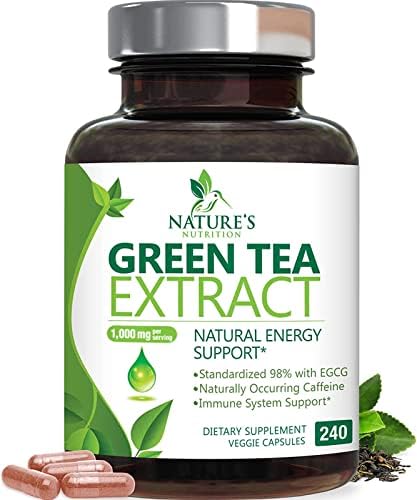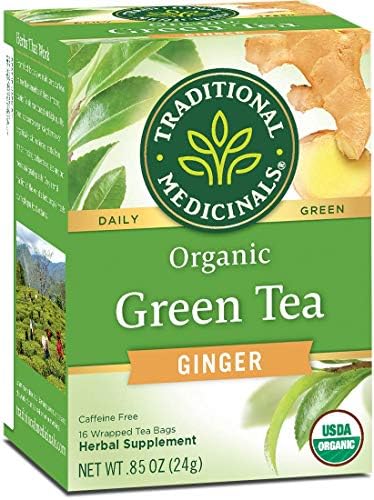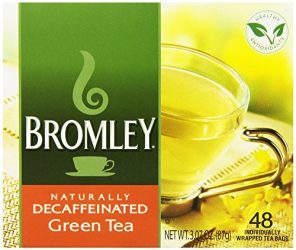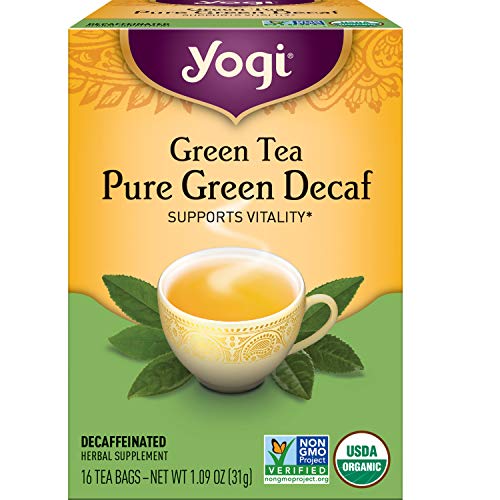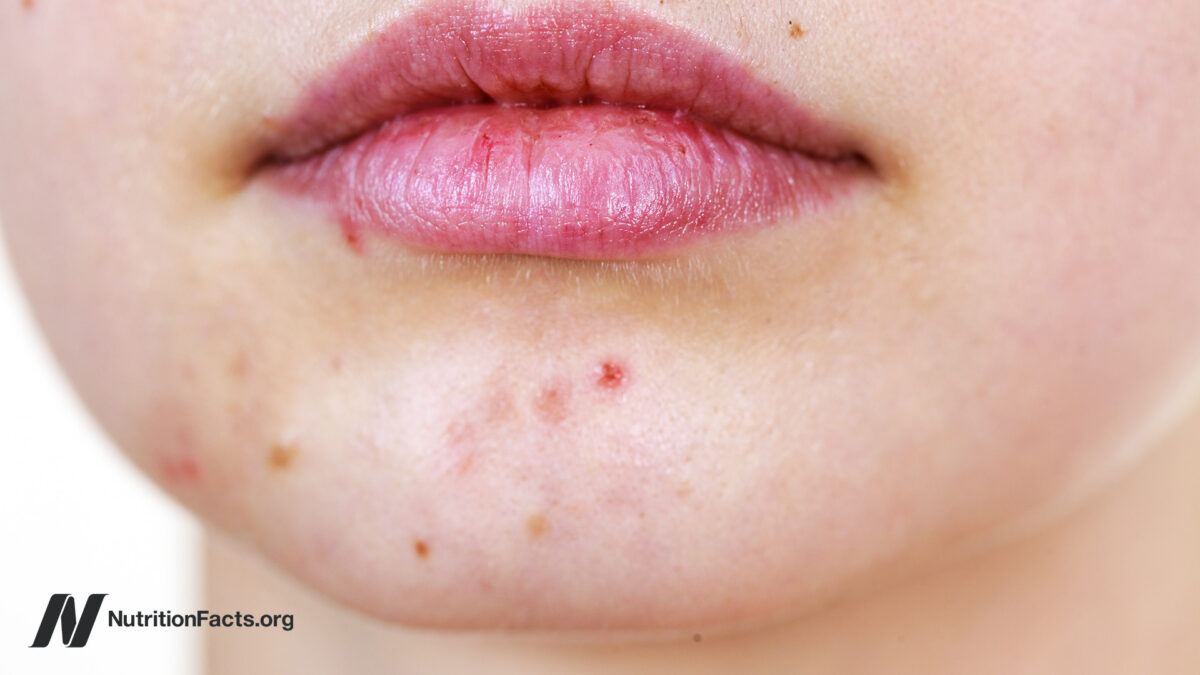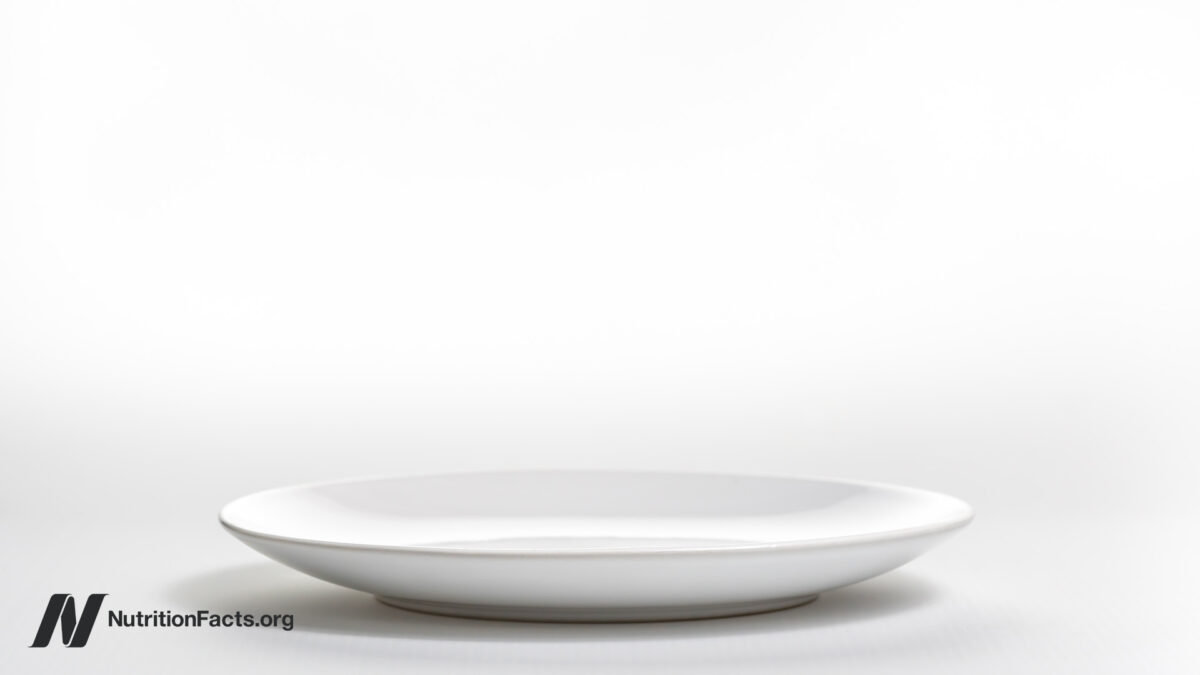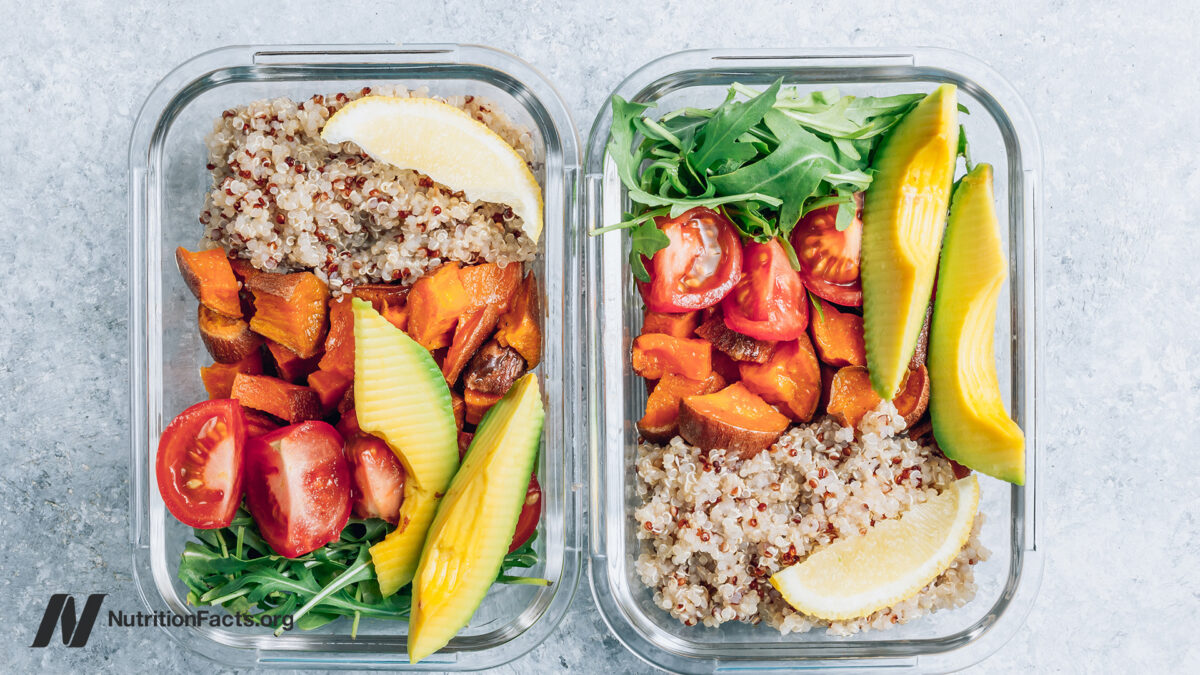Acne can be triggered in one in ten people who get vitamin B12 injections.
“Acne is a disease unique to humans.” Why do we even get it? Well, think about the distribution of those greasy sebaceous glands. They’re “on the face, chest and back; these are exactly the same structures that pose the greatest obstruction during childbirth…Having extra lubrication at these sites would help make the baby more slippery for birth conferring a selective advantage to successful delivery.” Perhaps, but what triggers them to become inflamed into pimples later in life?
“In westernized societies, acne vulgaris is a nearly universal skin disease afflicting 79% to 95%” of teens. Not even a single case could be found in some populations where more “traditional” diets are eaten (i.e., minimally processed, high-carb, low-fat diets). “Nutrition counseling” has been suggested “as a first-line or adjunctive therapy…for individuals with mild to moderate acne.” It looks like high glycemic foods and dairy products are “exacerbating factors,” so we’re talking about sugar, soda, refined junky carbohydrates, white flour, breakfast cereal, and dairy products, like milk, cheese, yogurt, and whey, as well as saturated and trans fats, which are concentrated in meat, dairy, junk, and fast food. You can see a table detailing this below and at 1:21 in my video Do Vitamin B12 Supplements Cause Acne?.

“Acne patients should be encouraged to discontinue any whey protein supplements they might be taking,” for example. “The relationship between milk and acne severity may be explained by the presence in dairy of normal reproductive [sex] steroid hormones or the enhanced production of polypeptide [growth] hormones such as IGF-1…” What if you gave up dairy a month ago and there’s still no change? “It should be noted that changes in acne due to any pharmaceutical treatment or dietary changes are likely to take at least 10 to 12 weeks,” so you have to stick with it.
“Acne patients,” not surprisingly, “were more than twice as likely to have a non-vegan diet compared with controls,” but the difference did not reach statistical significance. Were the vegans eating a lot of vegan junk? Maybe, but what about the paper entitled, “Vitamin B-12 Induced Acne”? Mammalian herbivores, including nonhuman primates like gorillas, and our fellow great apes, get all the B12 they need by practicing coprophagy, the eating of feces, but my preference would be to take B12 supplements. And you don’t have to worry about getting too much because it’s been reported that “there are no reports of adverse effects associated with excess B12 intake”—but that’s not true. First described back in the 1950s, acne erupts in about one in ten people within days or even hours of getting an injection of vitamin B12, which then disappears rapidly when injection “treatment is discontinued.”
At the time, we had no idea what the mechanism might be, and the problem remained unsolved until just a few years ago when we finally figured it out: Vitamin B12 modulates the gene expression of the skin bacteria that cause acne. Researchers swabbed the skin of ten people before and after being injected with vitamin B12. As you can see below and at 3:20 in my video, it turns out that the level of B12 on our skin is proportional to the level in our blood, so, after a B12 injection, the bacteria on our skin have to make less of their own B12. As a result, the acne bacteria could concentrate instead on using their cellular machinery to churn out more compounds to attack our face and “induce inflammation in acne.”

Indeed, as you can see here and at 3:53 in my video, without excess B12 on the skin (with B12 shown in green), the bacteria have to make most of it on their own at the expense of porphyrins (shown in red), which can trigger acne inflammation. When there is a lot of B12 floating around, the bacteria don’t have to waste resources and, instead, can focus on trying to pimple you up.

So, what do you do? We know that individuals on plant-based diets have to take supplemental B12, but we don’t have to get injections. Vitamin B12-related acne tends to occur only “in dosages in excess of 5 to 10 mg per week.” That’s 5,000 to 10,000 micrograms a week, which is well in excess of the 50 micrograms a day or, alternately, the 2,000-microgram single weekly dose that I recommend. The only time you should be taking 5,000 to 10,000 micrograms a week is if you are treating B12 deficiency. If you remember from my previous video, B12 deficiency is treated with 1,000 micrograms a day for a month or more, as shown below and at 4:35 in my video, and that could potentially trigger acne.

For example, a vegan woman who hadn’t been taking B12 developed a deficiency and had to be treated with such high doses of the vitamin that her face erupted in acne, as you can see at 4:49 in my video. All the more reason not to become B12-deficient in the first place. But, even if you do get B12 injections, the likelihood of it triggering acne may only be about one in ten.
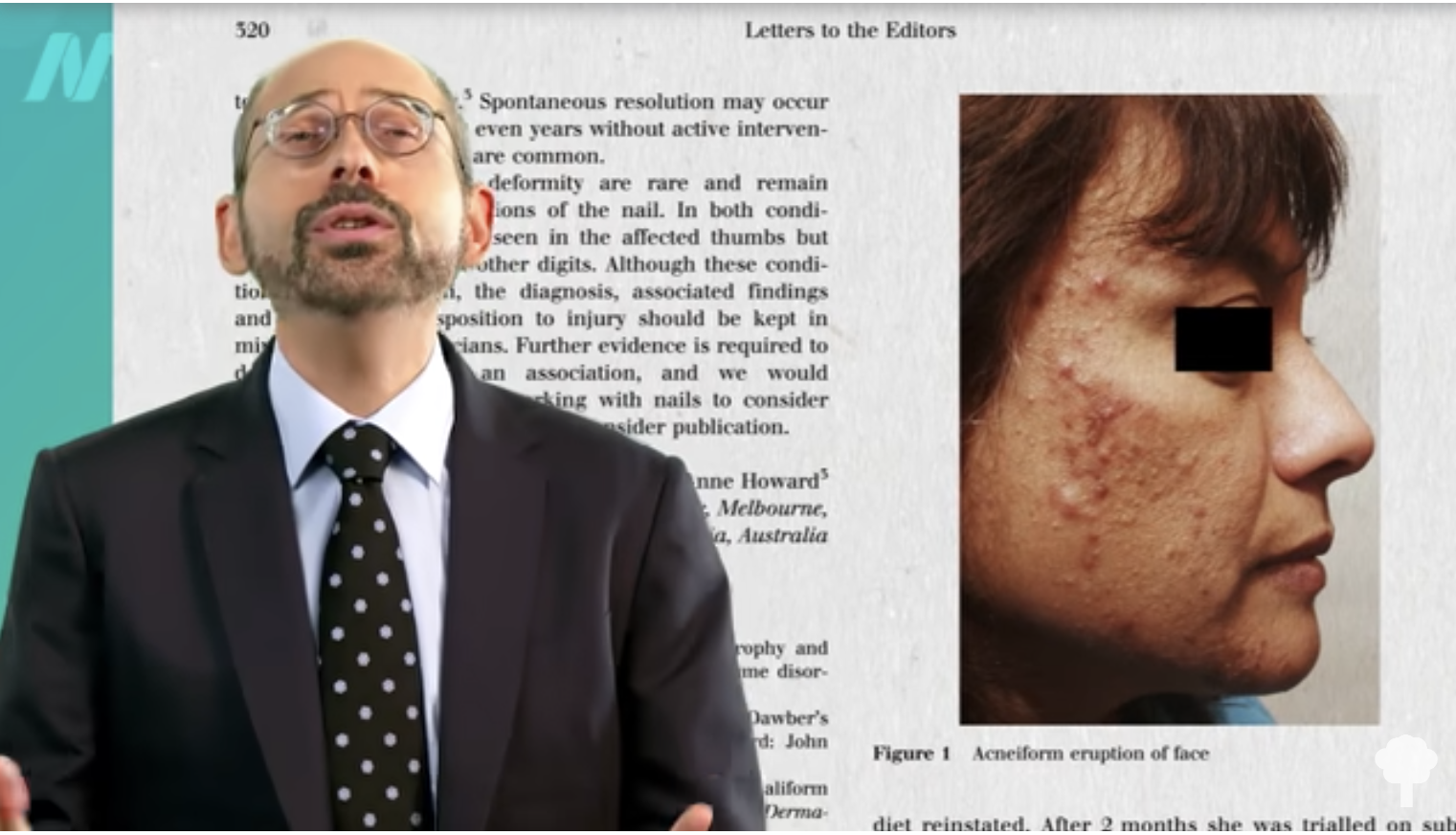
For background and my updated recommendations, see my extended look at vitamin B12 in the related posts below. All of these videos can be found in one digital download. Check out Latest Vitamin B12 Recommendations.
I previously explored vitamin B12’s role in stroke risk, which you can also see in the related posts below. That series is available for digital download, too: Why Do Vegetarians Have Higher Stroke Risk?.
Up next is Do Vitamin B12 Supplements Cause Bone Fractures and Lung Cancer?.


